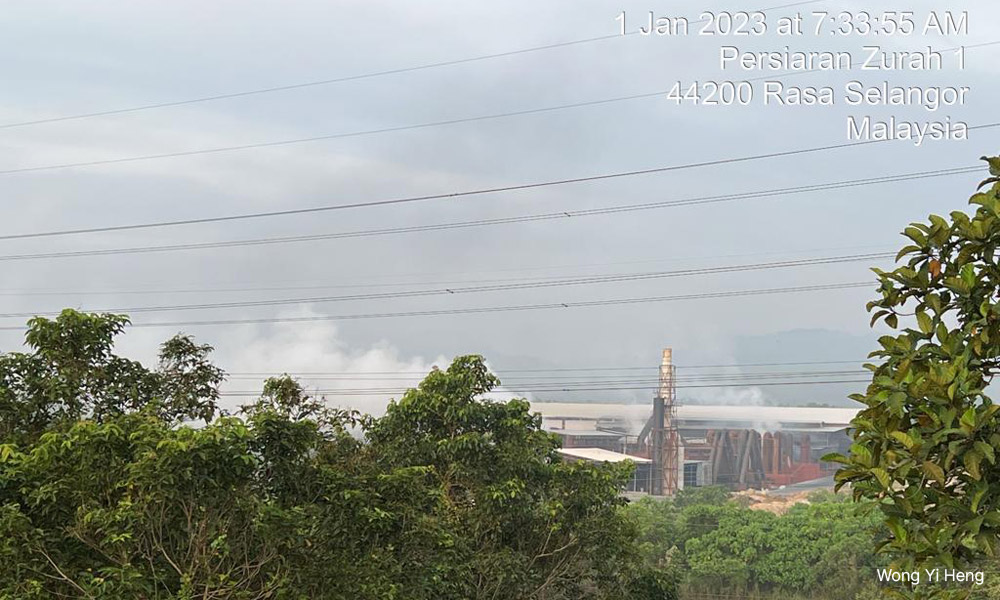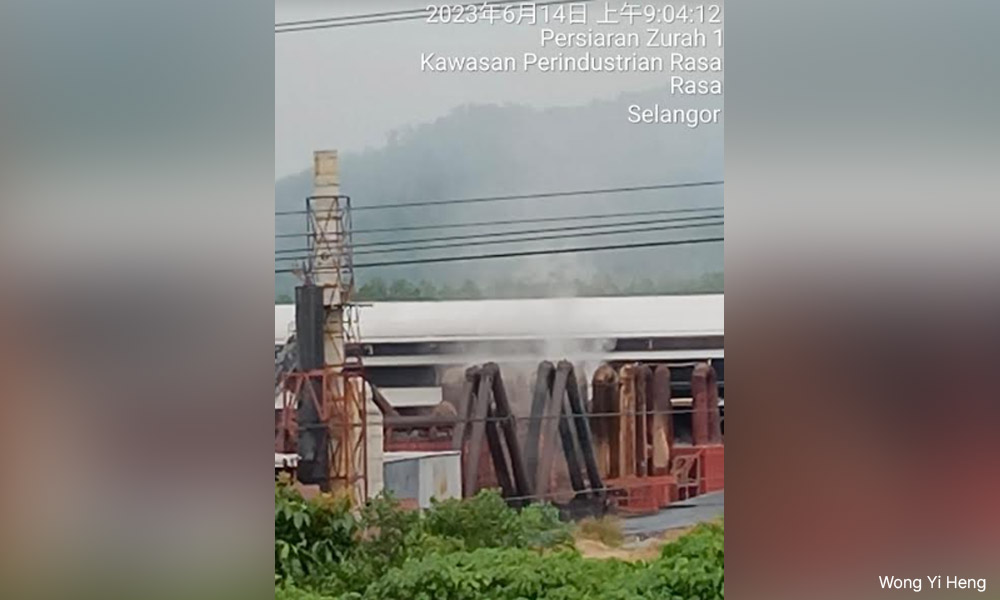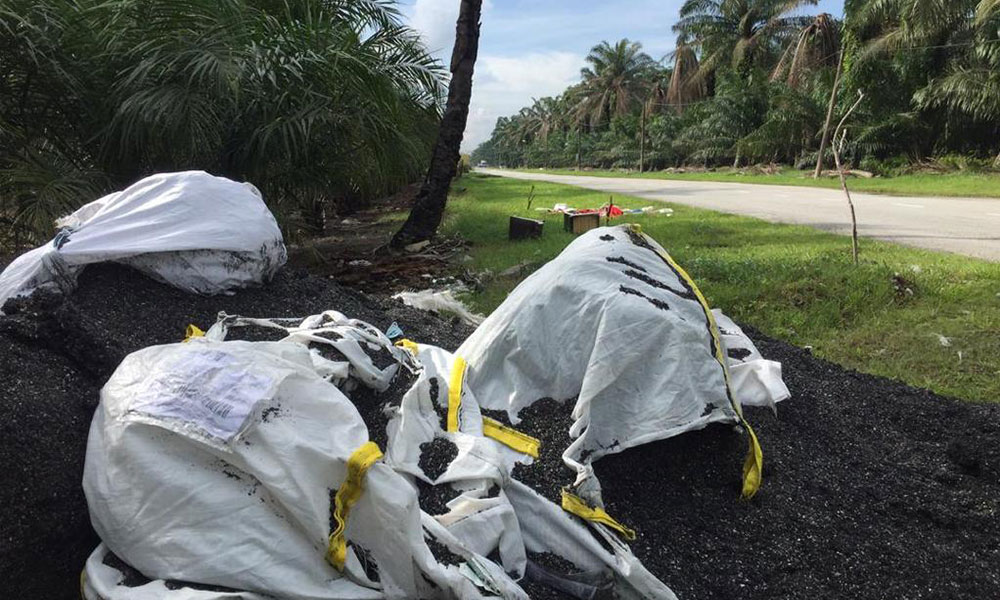As the sun begins to set over Kampung Rasa in the Hulu Selangor district of Selangor, the machines in an e-waste recycling factory situated approximately 1km away from the residential area begin to operate and an acrid smell fills the air.
Residents have endured the stench of odour pollution, allegedly caused by Efast Industries Sdn Bhd, almost every night for several years, long-time resident Wong Yi Heng told Malaysiakini.
Since Efast’s facility was erected in the vicinity of the village in 2019, Wong claimed that the factory has always operated at night until the wee hours of the morning.
“This is against the operating hours of 9am to 6pm set by the Selangor Environment Department (DOE).
“It’s illegal burning!” the 34-year-old businessperson stressed, adding that an estimated 5,000 people are affected.
An Efast representative, however, denied the claims but could not be quoted since she is not authorised to speak on behalf of the company.
Malaysiakini’s multiple requests for an interview and the news portal’s questions sent to Efast’s representative have yet to be answered.
Efast said it can only answer questions in an in-person interview but was unable to provide an appointment date at press time.

‘Greenish fumes’
According to Wong, residents fear that Efast has not been following proper e-waste recycling processes because the pungent emissions are “greenish” in colour.
The DOE website categorises e-waste as scheduled wastes under Code SW110 in the First Schedule, Environmental Quality (Scheduled Wastes) Regulations 2005.
Code SW110 is defined as waste from electrical and electronic assemblies containing components such as accumulators, mercury switches, glass from cathode-ray tubes and other activated glass or polychlorinated biphenyl-capacitors.
It also includes wastes contaminated with cadmium, mercury, lead, nickel, chromium, copper, lithium, silver, manganese or polychlorinated biphenyl.
The components contain precious metals such as gold, copper, palladium and silver.
However, if not disposed of in an environmentally sound manner, DOE said the components - which contain toxic and hazardous materials - will permeate into the earth and subsequently, the water sources and threaten aquatic and human life.
“If they followed every step, why is there smoke and smell? Is it because they omitted certain processes to cut corners?” Wong asked.
One concern, he said, is whether the company was separating the precious metals from the plastic coating and backings accordingly - a tedious and expensive process.
Previously, it has been reported that some plants cut costs by burning all the waste together to melt the plastic from the precious metals.
This practice generally leaves a foul stench in the air. When visiting the area in Hulu Selangor recently, an unpleasant odour was observed lingering in the air.

Malaysiakini’s checks found that Efast’s factory is situated about 1km away from the industrial area, isolated from the rest of the factories in the village.
The facility is built near ponds, which residents believe to be connected to the Selangor River via underground waters.
According to Companies Commission Malaysia, Efast Industries Sdn Bhd is owned by a 39-year-old “Datuk” and three others.
Two of its shareholders, who own 40 percent and 30 percent of the firm, are foreign nationals.
A Selangor sultan’s brother, who listed the Selangor palace as his address, is a director of the company.
The company made RM3.2 million in revenue, according to its accounts filed in March last year, but reported losses of about half a million ringgit.
Efast Industries Sdn Bhd company profile from the Companies Commission Malaysia (above).
Spotcheck by DOE
Wong said the odour pollution persists despite multiple complaints to numerous authorities, especially to the Selangor DOE.
However, he said the enforcement officers would only arrive a few days after the complaint and would miss the odour pollution when it happened.
“Efast operates at night, but they (Selangor DOE officers) would come in the morning. Of course, they wouldn’t see any smoke or smell anything.
“And they would always inform me that the ‘investigation has concluded’. How can it be concluded when we still suffer from the unpleasant odour and smoke?” he asked.

On Feb 15 last year, however, a spot-check led by then environment minister Tuan Ibrahim Tuan Man found the factory’s air pollution monitoring was faulty.
The raiding party also discovered scheduled waste stored with other materials, breaching conditions of approval.
However, it was only a temporary relief for the residents, as the factory was soon allowed to operate again.
Left at their wits’ end, Wong and several local residents said they were in the midst of planning for a protest to raise awareness on the matter.
Multiple suspensions, but no legal action?
In fact, the factory’s operating licence was suspended again earlier this year but swiftly reinstated.
This is much to the frustration of incumbent Kuala Kubu Bharu assemblyperson Lee Kee Hiong who has raised the residents’ complaints with the Selangor DOE on multiple occasions.
Lee, who is seeking re-election in the state polls, said the factory’s licence was suspended on March 22, but the suspension was lifted on April 17.
DOE letter informing Efast that its operations are suspended, dated March 22, 2023 (above).
According to the suspension letter issued by the Selangor DOE to Efast, the e-waste recycling factory’s licence was suspended for carrying out operations using furnace burners that used coal and bag filters in one of its line production, without the DOE’s permission.
This, the DOE said, was in violation of the Environmental Quality (Clean Air) Regulations 2014.
Like in the February 2022 raid, the DOE found the Continuous Emission Monitoring System (CEMS) was not operating at all times and no observation data from the chimney was immediately sent to the DOE via the Integrated Remote Monitoring Enforcement (I-Remote) system.
DOE letter informing Efast that its suspension was lifted, dated April 17, 2023 (above).
Lee said the DEO, in a letter informing Efast that its suspension was lifted, stated that operating hours should be from 9am to 6pm.
Yet, the day after the suspension was lifted, the factory allegedly operated at night, and has continued to do so since then, she said.
“Why did DOE lift the suspension so quickly? Why were there no legal actions taken against Efast?” Lee asked.
When contacted, the DOE told Malaysiakini that Efast has repaired its monitoring system and the department will continue its inspections.
“The scheduled inspections are still ongoing to ensure that the factory always complies with the Environmental Quality Act 1974 at all times,” it said.
However, it did not address complaints that Efast was operating out of hours.
Not the only case
Kampung Rasa residents are not the only ones plagued by fumes allegedly from e-waste processing in Selangor.
Last December, Malaysiakini reported how Kuala Langat residents faced smelly fumes from what is believed to be illegal e-waste processing plants.
The operators also left residue from the processed e-waste on roadsides and bushes, in mounds which from a distance look like fertiliser.

Upon a closer look, there were little pieces of plastic and metal, including burnt wires and microchips.
Following Malaysiakini’s report, the Kuala Langat Municipal Council contacted the portal to seek details on the matter, in order to conduct an inspection.
Pollution from e-waste processing is also an issue nationwide, with tonnes smuggled into Malaysia monthly, sources within the DOE and Customs Department told this news portal. - Mkini




No comments:
Post a Comment
Note: Only a member of this blog may post a comment.